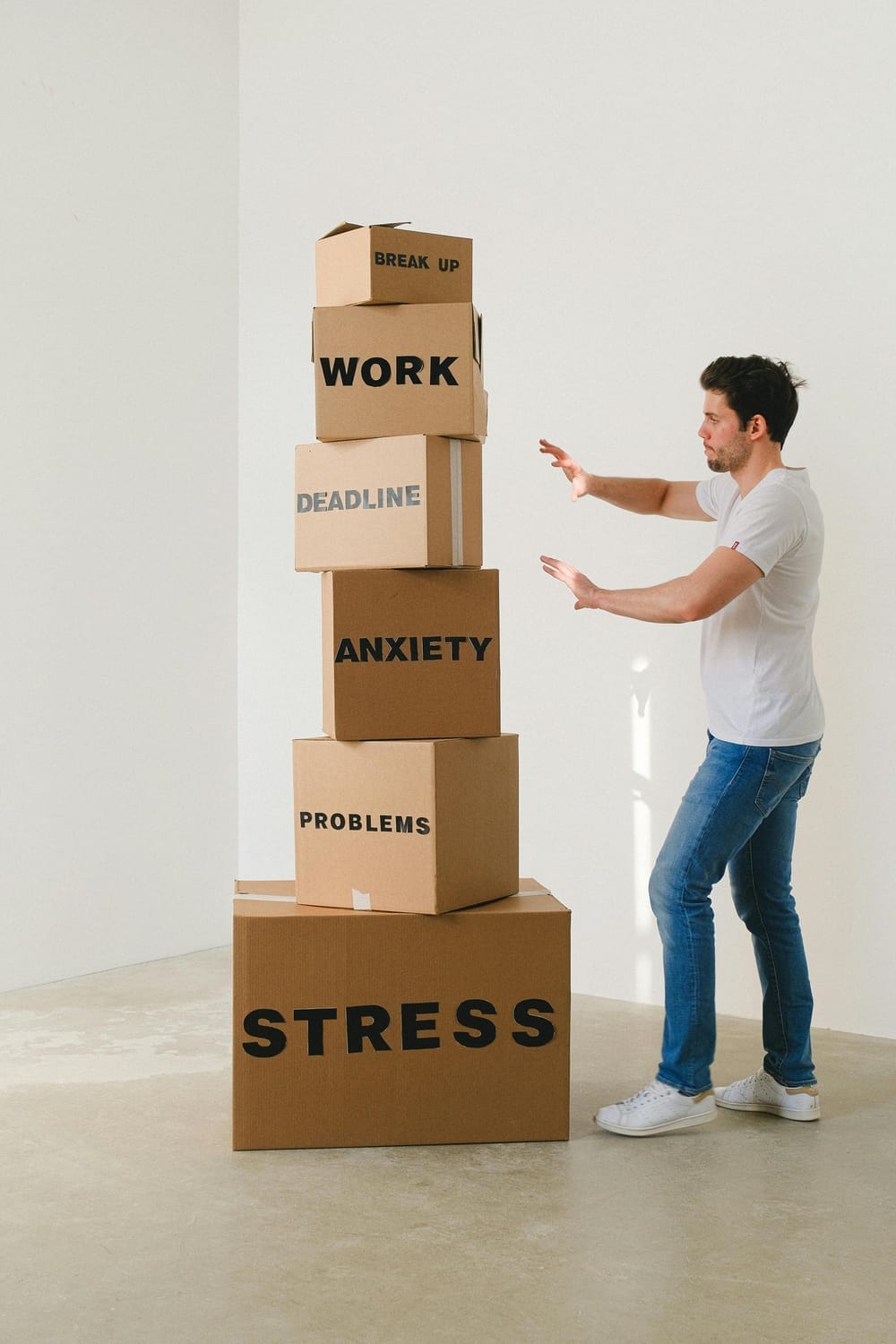

Mindful
Meditation
Unlocked
"Quiet the Mind. Unlock the
Present. Discover Mindfulness
That Transforms."
10 Common Mental Illnesses Everyone Should Know About
Do you know about the many mental health conditions that affect millions globally? Mental health awareness is key today. Knowing about different mental illnesses helps you support those in need.
Mental health is as vital as physical health. Learning about common mental illnesses can greatly help those affected.
Exploring mental health is important. It's key to understand the many mental health issues. By learning, you can help spread awareness and support those in need.
Key Takeaways
Understanding mental health conditions can help you support those around you.
Mental health awareness is vital in today's world.
Knowing about common mental illnesses can make a big difference.
Education and awareness promote mental health support.
It's important to recognize the prevalence of mental health conditions.
Understanding Mental Health in Modern Society
As you navigate the complexities of modern life, understanding mental health is more important than ever. The stresses of today, from work to social media, deeply affect your mental well-being.
Mental health is as vital as physical health. It's key to recognize mental health signs to support those in need.
The Prevalence of Mental Health Conditions in America
Mental health conditions are more common than you might think. The National Institute of Mental Health says about 1 in 5 adults in the U.S. face mental illness each year. This means over 47 million adults live with mental health issues.
| Mental Health Condition | Prevalence |
|---|---|
| Major Depressive Episode | 7.1% of adults |
| Anxiety Disorders | 19.1% of adults |
| Post-Traumatic Stress Disorder (PTSD) | 6.8% of adults |
Breaking the Stigma: Why Mental Health Awareness Matters
Despite the commonality of mental health issues, there's a big stigma around mental illness. Mental health awareness is key to breaking these barriers. It helps people seek help without fear of judgment.
By promoting understanding and empathy, we can build a society that values mental health as much as physical health.
10 Common Mental Illnesses Everyone Should Know About

Learning about the top 10 mental health conditions can make a big difference. These illnesses vary in symptoms and impact. Understanding them is the first step to support and break down stigmas.
Depression: More Than Just Feeling Sad
Depression is a serious mental health condition. It's marked by persistent sadness, hopelessness, and a lack of interest in activities. It affects millions worldwide and can significantly impair daily functioning.
Key Symptoms and Warning Signs
Symptoms include persistent sadness, loss of appetite, changes in sleep patterns, and fatigue. If you or someone you know is experiencing these symptoms, it's important to seek professional help.
Anxiety Disorders: When Worry Takes Control
Anxiety disorders involve excessive fear and anxiety. They can significantly disrupt daily life. Each type has distinct symptoms.
Different Types and Their Symptoms
Types include Generalized Anxiety Disorder (GAD), Panic Disorder, and Social Anxiety Disorder. Symptoms can range from persistent worry and fear to panic attacks.
Bipolar Disorder: Understanding Mood Extremes
Bipolar Disorder is characterized by extreme mood swings. It includes emotional highs (mania or hypomania) and lows (depression). Understanding the condition can help in managing its impact.
Recognizing Manic and Depressive Episodes
Manic episodes involve elevated moods and increased energy. Depressive episodes are marked by sadness and loss of energy. Recognizing these episodes is key for diagnosis and treatment.
Post-Traumatic Stress Disorder (PTSD): Beyond the Trauma
PTSD is a condition that develops after a traumatic event. Symptoms can include flashbacks, severe anxiety, and uncontrollable thoughts about the trauma.
Triggers and Response Patterns
Triggers can cause a person with PTSD to experience flashbacks or severe anxiety. Understanding these triggers and response patterns is key to supporting individuals with PTSD.
Obsessive-Compulsive Disorder (OCD): Beyond Perfectionism
OCD is characterized by unwanted and intrusive thoughts (obsessions) and repetitive behaviors (compulsions). The condition can significantly impact daily life if not addressed.
Identifying Obsessions and Compulsions
Obsessions are recurring thoughts or urges, while compulsions are repetitive behaviors aimed at reducing anxiety. Identifying these is critical for diagnosing OCD.
| Mental Illness | Key Symptoms | Impact on Daily Life |
|---|---|---|
| Depression | Sadness, loss of interest, changes in appetite or sleep | Impaired daily functioning, social withdrawal |
| Anxiety Disorders | Excessive fear, anxiety, panic attacks | Disruption in daily activities, social avoidance |
| Bipolar Disorder | Mood swings, manic and depressive episodes | Significant impact on relationships and work |
Schizophrenia: Misconceptions and Reality
Schizophrenia is often misunderstood. It's a serious mental illness that affects how a person thinks, feels, and behaves. It's not just about having multiple personalities.
Early Warning Signs and Symptoms
Early signs include social withdrawal, unusual thoughts or perceptions, and a decline in functioning. Recognizing these signs early can lead to timely intervention.
Eating Disorders: When Food and Body Image Become Enemies
Eating disorders involve unhealthy eating habits. They can have serious health consequences. They are often linked to body image issues and can affect anyone.
Different Types and Their Danger Signs
Types include Anorexia Nervosa, Bulimia Nervosa, and Binge Eating Disorder. Danger signs include extreme weight loss, bingeing, and purging behaviors.
Attention-Deficit/Hyperactivity Disorder (ADHD): Not Just for Children
ADHD is often associated with children, but it can persist into adulthood. Symptoms include difficulty sustaining focus, hyperactivity, and impulsivity.
Adult ADHD Symptoms and Challenges
Adults with ADHD may experience challenges in organization, time management, and maintaining focus. Understanding these challenges is key to providing support.
Substance Use Disorders: The Cycle of Addiction
Substance Use Disorders involve the misuse of substances. They lead to significant impairment or distress. Understanding the cycle of addiction is key to recovery.
Recognizing Dependency and Abuse Patterns
Signs of dependency include increased tolerance and withdrawal symptoms. Recognizing these patterns can help in seeking timely intervention.
Borderline Personality Disorder: Emotional Regulation Challenges
Borderline Personality Disorder is characterized by difficulties in regulating emotions. This leads to intense mood swings and unstable relationships.
Identifying Relationship Patterns and Emotional Instability
Individuals with Borderline Personality Disorder may exhibit intense emotional dysregulation and unstable relationships. Identifying these patterns is critical for diagnosis and support.
Recognizing Mental Health Issues in Yourself and Others

Knowing the signs of mental health problems can help you or your loved ones get the help they need. Mental health issues show up differently in everyone. It's important to know the various warning signs.
Universal Warning Signs Across Different Conditions
Many mental health conditions share common warning signs. Look out for big mood changes, like feeling sad or angry all the time. Also, watch for changes in behavior, like pulling away from friends or sudden mood swings.
Physical habits can change too, like eating less or sleeping more. Other signs might be feeling hopeless, having trouble focusing, or not caring about things you used to love. Spotting these changes early can help a lot.
Self-Assessment: When to Seek Professional Help
If you notice several warning signs, it's time to check yourself. Ask if these symptoms are affecting your life, relationships, or work. If yes, it's time to get professional help. Getting help early can make a big difference.
Keeping a journal of your symptoms can help. It gives you and your doctor valuable information.
Distinguishing Between Temporary Struggles and Clinical Conditions
It's normal to face tough times that might seem like mental health issues. The important thing is to tell the difference between a short-term struggle and a serious condition. If your symptoms last a long time, mess with your daily life, or are really bad, they might be a sign of something serious.
Talking to a mental health expert can help figure things out. They can look at your symptoms, give a diagnosis, and suggest the right treatment.
Supporting Someone with a Mental Health Condition
Supporting someone with a mental health condition needs empathy, understanding, and the right approach. You can greatly help their recovery and well-being. Learning about their condition is key to giving good support.
Effective Communication Strategies
Good communication is key in supporting someone with a mental health issue. It's important to listen actively and accept their feelings without judging. Don't give advice without being asked or downplay their feelings. Instead, try to understand them and offer support that respects their emotions.
Practice active listening by maintaining eye contact and avoiding interruptions.
Use open-ended questions to encourage them to share their thoughts and feelings.
Avoid clichés that might come across as insensitive or dismissive.
Setting Boundaries While Supporting
When supporting someone with a mental health issue, it's important to set boundaries. Supporting a loved one can be very draining if not managed right. Clear boundaries help you keep supporting without harming your own health.
Talk about your limits with the person you're supporting. Also, find ways to share the responsibility with others if needed.
Encouraging Professional Treatment
Encouraging the person to get professional treatment is a big part of support. Mental health experts can offer the right therapy and treatment. You can help by finding resources, going to appointments with them, and encouraging them to follow their treatment plans.
Remember to be patient and understanding. Recovery from mental health issues can take a long time and can be hard.
Conclusion: Fostering a Mentally Healthier Society
Learning about the 10 common mental illnesses is key to building a supportive community. It's not just about knowing the signs of mental illness. It's also about creating a culture that talks openly and seeks help when needed.
Being informed and empathetic helps break the stigma around mental health. Knowing about resources like professional help and support groups is important. Encourage others to get help when they need it.
Creating a mentally healthier society takes everyone's effort. It's about making a space where people can talk about their mental health without fear. This way, we can build a society that values mental health awareness and supports those who need it.
FAQ
What are the most common mental illnesses?
Common mental illnesses include depression and anxiety disorders. Bipolar disorder and PTSD are also common. OCD, schizophrenia, and eating disorders are among them too. ADHD, substance use disorders, and borderline personality disorder round out the list.
How can I recognize the signs of mental illness in myself or others?
Look for mood, behavior, or cognitive changes. Warning signs include feeling sad or anxious a lot. Also, watch for changes in appetite, sleep, or concentration. If you see these signs, getting help is key.
What is the difference between a temporary struggle and a clinical mental health condition?
A temporary struggle is a short-term issue that can be handled with support. A clinical mental health condition is a long-term issue that affects daily life. It needs professional help.
How can I support someone with a mental health condition?
Support them by being open and understanding. Set boundaries while being supportive. Encourage them to get professional help. Being patient and empathetic helps them feel more comfortable.
Why is mental health awareness important?
Awareness helps break the stigma around mental illness. It promotes understanding and encourages seeking help. It makes our community more supportive and inclusive.
What are some common symptoms of mental illness?
Symptoms include mood changes like depression or anxiety. You might see changes in behavior or cognitive function. Look for changes in appetite, sleep, or physical complaints without a clear cause.
How can I distinguish between different types of mental disorders?
Understanding their characteristics and symptoms is key. A mental health professional can help with an accurate diagnosis. They can also create a treatment plan.
What are some mental health facts that can help reduce stigma?
Knowing mental health conditions are common helps reduce stigma. Recognizing they can affect anyone promotes empathy. Open discussions about mental health are encouraged
Stay Mindful
Get updates & free mental wellness tips.
Hi 👋
Hope you are doing okay, Just want to let you know,
Some links on this site are affiliate links. We may earn a small commission if you make a purchase — at no extra cost to you.
Understand Your Mind.
Try our quick quizzes to learn more about your mental health.
Check these out









